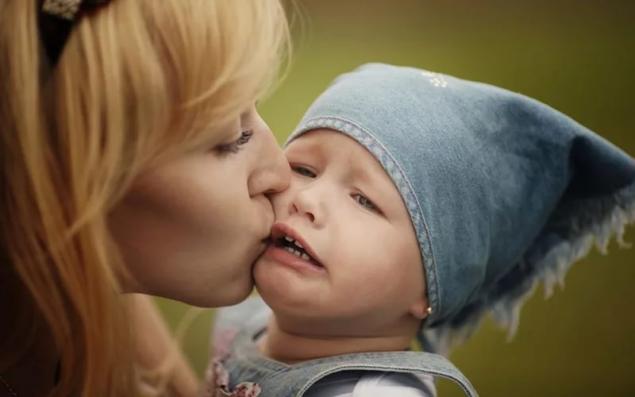416
5 seconds of silence instead of accusations
How best to react to the negative emotions of children? There are 2 kinds of reaction when we face manifestation of negative emotions. The first method is to make a suggestion, to say that it has no due qualities or ungrateful, or something else, or try to amuse, to distract, thereby disturbing natural process of experience of emotions.
The second way is to try to understand what the child feels.

There is the principle of "5 seconds of silence". These 5 seconds of silence are a timeout, time to switch from one program to another, it is from program "all settled Mr" or "Mrs all settled".
I must say that some mystical law of mother try to give that to their children that they are trying to give husbands and that actually not strongly helps to give the decision instead of emotional support.
So, for example, when a child is upset, distressed and crying, a manifestation of the egoistical decision may be the phrase: "don't cry, nothing bad happened."
Instead, you need 5 seconds of silence, in order to switch the program, and instead of Council or reproach just say, "I know you're disappointed." Instead of the phrase "don't worry", when we see that the child is worried about something, pause 5 seconds and try to say: "Yes, it is, I know you are concerned."
Instead of the phrase of calm, something like: "Well, okay", after a pause of 5 seconds, we can say:"Indeed, I know how you feel, I too would be sad if it happened to you".

Instead of the phrase, "Well, okay",after a pause of 5 seconds we can say, "I know you're hurt, come here, I'll regret", or simply: "Come to me", because usually when the child is bad, the phrase "come to me" by itself means that it will receive support.
"You can't win" — we say to a child who is faced with the suffering caused to other children.
Here, too, need a 5 seconds pause and the words: "You're absolutely right to be angry, I too was angry".
Instead, the phrase "Could be worse", required 5 seconds pause and the words: "I see you're scared, I see you're not a little scared. I would be too. But nothing, next time it happens." The child may in these situations not to support your compassion and continue to speak about other negative emotions.Remember that this is absolutely normal.
With their support you opened the crane of negative emotions, the flow of negative emotions given out, that is all done correctly.published
P. S. And remember, only by changing their consumption - together we change the world! ©
Source: ok.ru/kids.life/topic/66374323492320
The second way is to try to understand what the child feels.

There is the principle of "5 seconds of silence". These 5 seconds of silence are a timeout, time to switch from one program to another, it is from program "all settled Mr" or "Mrs all settled".
I must say that some mystical law of mother try to give that to their children that they are trying to give husbands and that actually not strongly helps to give the decision instead of emotional support.
So, for example, when a child is upset, distressed and crying, a manifestation of the egoistical decision may be the phrase: "don't cry, nothing bad happened."
Instead, you need 5 seconds of silence, in order to switch the program, and instead of Council or reproach just say, "I know you're disappointed." Instead of the phrase "don't worry", when we see that the child is worried about something, pause 5 seconds and try to say: "Yes, it is, I know you are concerned."
Instead of the phrase of calm, something like: "Well, okay", after a pause of 5 seconds, we can say:"Indeed, I know how you feel, I too would be sad if it happened to you".

Instead of the phrase, "Well, okay",after a pause of 5 seconds we can say, "I know you're hurt, come here, I'll regret", or simply: "Come to me", because usually when the child is bad, the phrase "come to me" by itself means that it will receive support.
"You can't win" — we say to a child who is faced with the suffering caused to other children.
Here, too, need a 5 seconds pause and the words: "You're absolutely right to be angry, I too was angry".
Instead, the phrase "Could be worse", required 5 seconds pause and the words: "I see you're scared, I see you're not a little scared. I would be too. But nothing, next time it happens." The child may in these situations not to support your compassion and continue to speak about other negative emotions.Remember that this is absolutely normal.
With their support you opened the crane of negative emotions, the flow of negative emotions given out, that is all done correctly.published
P. S. And remember, only by changing their consumption - together we change the world! ©
Source: ok.ru/kids.life/topic/66374323492320























